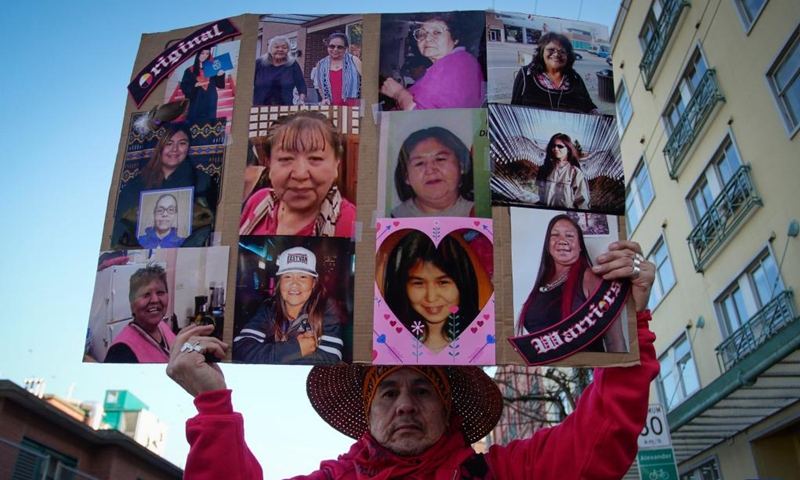Families Honour Missing and Murdered Indigenous Women and Girls at Annual Memorial March
Vancouver, BC – The annual Memorial March for Missing and Murdered Indigenous Women, Girls, and Two-Spirit People (MMIWG2S) brought together hundreds of family members, activists, and community supporters in a solemn yet powerful gathering to honour the lives lost to violence.
As the evening unfolded, a phrase resonated through the crowd: “You are warriors tonight.” These words, spoken by loved ones and community leaders, underscored the resilience of those seeking justice for their missing and murdered relatives.
A March of Remembrance and Resilience
The Memorial March, first held in 1992, has become a vital event in advocating for awareness, justice, and policy change surrounding the disproportionate violence faced by Indigenous women, girls, and Two-Spirit individuals. The march not only mourns those lost but also demands action from government agencies, law enforcement, and the broader public to address systemic issues contributing to this crisis.
For many, the march is deeply personal. Families hold banners with the faces of their loved ones, drumming and singing traditional songs as they walk through the city streets. Elders offer prayers, while community members light candles in remembrance of the victims.
The Ongoing MMIWG2S Crisis
According to the National Inquiry into Missing and Murdered Indigenous Women and Girls, Indigenous women and girls in Canada are 12 times more likely to be murdered or go missing compared to non-Indigenous women. The final report, released in 2019, concluded that the violence constitutes a national genocide, driven by colonial policies, systemic racism, and ongoing socio-economic inequalities.
Despite increased awareness, many families feel that government responses remain inadequate. Advocacy groups continue to push for the full implementation of the 231 Calls for Justice outlined in the national inquiry’s report.
Calls for Action and Justice
During the march, speakers called on federal and provincial governments to take more decisive action to prevent violence and support affected families. Many stressed the need for:
Improved law enforcement responses to MMIWG2S cases
More funding for Indigenous-led initiatives that provide support and resources to families
Stronger legal protections for Indigenous women, particularly those in vulnerable situations
Greater public awareness and education on the root causes of this crisis
Community Support and Healing
Beyond policy demands, the march serves as a space for healing. Survivors, families, and supporters embrace, share their stories, and offer each other strength. The event is also a reminder that Indigenous communities continue to fight for justice, refusing to let the voices of their loved ones be forgotten.
Keeping the Movement Alive
While the annual march is a key moment of solidarity, advocates stress that action is needed year-round. Organizations such as the Native Women’s Association of Canada (NWAC), Families of Sisters in Spirit, and Walking With Our Sisters work tirelessly to keep MMIWG2S issues at the forefront.
For families who have lost mothers, daughters, sisters, and aunties, the fight for justice continues. As one speaker poignantly stated, “We walk not just in mourning, but in power.”
Source : Swifteradio.com


